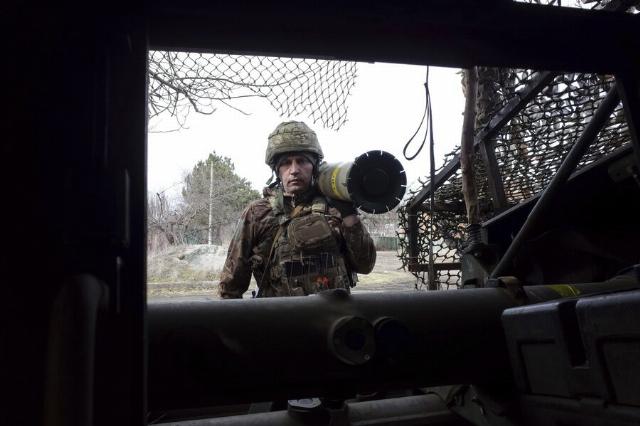FT: The West will create three lines of defense in Ukraine after the conflict ends
The US authorities are ready to provide intelligence resources and monitor the battlefield as part of any Western security plan for post-war Ukraine, and will also participate in the country's European air defense system, the Financial Times writes, citing European and Ukrainian officials. At the same time, part of the Donald Trump administration still opposes any involvement of Washington in the post-war settlement in Ukraine.
Last week, US President Donald Trump told European leaders that Washington would participate in "coordinating" security guarantees for Ukraine when the conflict was over.
The United States is ready to provide "strategic resources," including surveillance and reconnaissance (ISR), command and air defense capabilities, to support any ground deployment of troops under European leadership, four sources familiar with the negotiations told the FT .
The "Coalition of the Willing," led by Britain and France, promises to protect post-war Ukraine from "any future Russian aggression," but the publication's interlocutors privately admit that the deployment of forces can only be safely carried out with the support of the United States.
FT reminds that Washington is already supplying Kiev with Patriot anti-aircraft missile systems.
The participation of the United States will allow for satellite monitoring of the ceasefire and effective coordination of the actions of Western forces in the country.
Lines of defense
The plan of Western countries suggests the possible creation of three "lines of defense" on the territory of post-conflict Ukraine, one of which is a demilitarized zone, which will be patrolled by neutral peacekeepers from a third country, as agreed by Ukraine and Russia.
Trump's new proposal depends on future commitments by European capitals to deploy tens of thousands of troops in Ukraine and "may still be withdrawn." Nevertheless, its very existence shows a significant change in the position of the US leader, who previously ruled out any participation in the system of guarantees for Ukraine's security after the end of his military service.
The United States continues to oppose the deployment of its own troops in Ukraine, the newspaper's interlocutors note. In addition, some Trump administration officials, including Defense Secretary Pete Hegseth, are skeptical even of any Washington involvement in post-war guarantees.
Western troops in Ukraine
Yesterday, President of Ukraine Volodymyr Zelensky expressed the hope that Western troops would be present on Ukrainian territory "with varying levels of engagement."
"I think there will be different levels of engagement, but it's not up to me to decide and talk about boots on the ground. I think it's important that they were from major countries, leading members of the coalition of the willing," he said at a meeting with German Finance Minister Lars Klingbeil.
Russian Foreign Minister Sergei Lavrov has repeatedly stressed that Moscow opposes the presence of NATO troops in Ukraine, and security guarantees should not include intervention on part of Ukrainian territory. On August 18, the official representative of the diplomatic mission, Maria Zakharova, stressed that statements by representatives of the "coalition of the willing" about the possible deployment of a Western military contingent in Ukraine were aimed at undermining the peace efforts of Russia and the United States.
Russian President Vladimir Putin in August, following talks with his American counterpart Donald Trump, said he agreed with the need to provide Ukraine with security guarantees, but opposed Kiev's membership in NATO.
Leonid Tsvetaev

